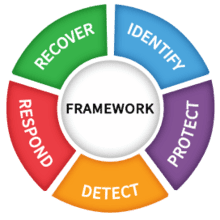If you are intelligent and creative, you can very often find a way to accomplish things that others can’t. Some talented people become trailblazers in their field, consistently meeting goals that they have set for themselves. But left to ourselves, doing very well can often become a hit-or-miss proposition. To bring everyone up to speed and improve quality across industries, many organizations have developed professional standards (security compliance) to clarify expectations for both companies and individuals. Many of these practices have been codified as stringent requirements that bring rewards or penalties based on compliance. The idea is to improve the industry as a whole by bringing everyone up to speed with current industry best practices, and IT security compliance is critically important.
Why Comply – The Need for Security Compliance?
Standards organizations provide the opportunity to demonstrate the highest quality in professional practices. If your company wants to be recognized as knowledgeable and capable in your field, becoming certified in a particular standard can make that apparent to the whole world. Many standards have corresponding certifications that are often multi-tiered. Potential customers will generally have more trust in businesses that have undertaken the rigors of professional certification. Those who have certifications related to IT security can set themselves apart (see some of the compliance categories below).
Beyond industry recognition, some standards are attached to governmental regulations that determine whether a company is permitted to practice in their field. Legal and financial requirements play a big part in governmental compliance. Very often, compliance with regulatory standards is required before you can provide any services for your customers. Regulatory bodies are especially interested in data privacy.
ISO 27000/27001
The International Organization for Standardization (ISO) is a global network of 165 national standards bodies. A subset of these standards is called ISO 27001: Information Security Management. There is no general requirement for ISO 27001 certification, but it can help both with improving quality within a company and providing credentials for potential customers. ISO does not perform the certification themselves; that is left to external certification bodies. A significant number of businesses worldwide pursue ISO 27001 certification every year.
NIST
The National Institute of Standards and Technology (NIST) is a part of the U.S. Department of Commerce. It’s a scientific organization that’s been around since 1901. NIST is all about measurements. NIST standards support a wide range of industries, including information technology. In terms of IT security, NIST provides a cybersecurity framework that includes standards, guidelines and best practices. The framework covers five areas: detect, respond, recover, identify, and protect. Organizations use NIST’s cybersecurity framework to deal with the many cyberthreats that they continually face.

Sarbanes-Oxley
The Sarbanes-Oxley Act of 2002 deals with matters of corporate responsibility. Congress passed the law in response to large financial scandals that had plagued America in preceding years. Compliance with Sarbanes-Oxley is of particular concern for those who deal with the financial aspects of a business. These requirements must also be considered by those who handle IT security.
HIPAA
Anyone who works in the medical profession knows the importance of the Health Insurance Portability and Accountability Act (HIPAA). The main focus of HIPAA is to ensure the privacy of patients. Those who handle the data of patients must be particularly careful to protect the confidentiality of this information. HIPAA compliance is required of IT professionals and database managers as much as those who treat patients in hospital rooms.
PCI-DSS
Another important consideration for businesses is payment card industry (PCI) compliance. PCI standards have been established by the PCI Security Standards Council. Customers who use debit or credit cards need to be assured that their financial transactions are completed successfully and without interference from cyber criminals. The payment card industry data security standard (PCI-DSS) includes requirements that provide for the safe processing, storage, and transmittal of credit card information.
GDPR
The General Data Protection Regulation (GDPR) is the law established by the European Union (EU) to protect data for all its citizens. Companies across the EU are required to guard the personal data of individuals according to precise rules. Anyone doing business in the EU should be familiar with GDPR and its requirements.
CCPA
The California Consumer Privacy Act (CCPA) was passed in 2018 to provide similar protections for Californians. Companies with an annual revenue of $25 million are required to comply. CCPA gives individuals the right to sue companies for breach of privacy and is much like GDPR.
Conclusion
IT security involves much more than just putting up a firewall and training users. It includes maintaining compliance with a variety of best practices across different industries. Some of these standards are voluntary, while others are backed by the force of law. Ignorance of the law is no excuse, and failure to keep up with industry standards can be harmful to your business. Anyone handling sensitive data online must educate themselves on the various security compliance requirements related to their field. Talk to us today if you wonder how compliance can affect your business.


